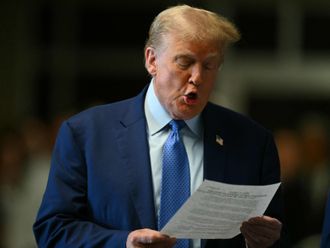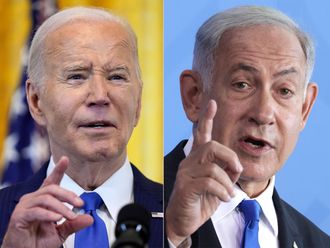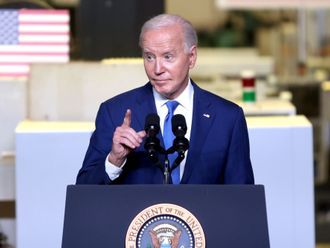Sao Paulo/Brasilia: The chief executive of Brazil’s biggest independent investment bank and the leading senator in the governing coalition were arrested on Wednesday on suspicion of obstructing the country’s most sweeping corruption investigation ever.
The detention of such prominent power brokers on orders from the Supreme Court raised the stakes dramatically in a bribery scandal that started with state-run oil company Petrobras and now threatens the heights of Brazilian banking and politics.
The arrest of André Esteves, the billionaire CEO and controlling shareholder of BTG Pactual SA and Brazil’s most influential dealmaker, sent the bank’s listed shares into a dive that wiped out a fifth of its market value and raised red flags at the central bank.
Brazil’s Congress also ground to a halt with the arrest of ruling Workers’ Party Senator Delcídio do Amaral, a veteran lawmaker who has run the economic affairs committee and who has been key to President Dilma Rousseff’s unpopular austerity program.
Brazil’s currency fell as much as 2 per cent as the scandal threatened both the country’s sixth-largest bank and the president’s sputtering efforts to pass a new budget and avoid another credit ratings downgrade to junk.
Brazil’s central bank said it was monitoring the arrest of Esteves to see whether it would impact operations at BTG Pactual and trigger regulatory action.
Banking analysts warned that BTG Pactual, the largest independent investment bank in Latin America, could struggle to navigate Brazil’s worst recession in a quarter century without its wunderkind founder at the helm.
Clients withdrew funds equivalent to less than 1 per cent of assets under management at BTG Pactual, which was less than had initially been expected by some, said a source with knowledge of the bank’s strategy.
The six-year-old BTG Pactual, which manages about 230 billion reais ($61 billion), tapped less than 5 per cent of its about 40 billion reais in cash reserves to cover those redemptions, said the source, who requested anonymity because of the sensitivity of the issue.
Shockwaves in Congress
The political gridlock that has obstructed economic policy this year is likely to worsen with the jailing of Amaral, one of about 50 Brazilian politicians under investigation for their alleged roles in a vast kickback scandal at the oil giant known as Petroleo Brasileiro SA.
Amaral’s arrest was the first ever for a sitting senator in Brazil and it sent shock waves through the capital.
Congress suspended its sessions as senators met to discuss how to handle the arrest. After a heated debate in which some government supporters defended Amaral, the Senate voted 59-13 to uphold the top court’s decision to order his arrest.
Supreme Court Justice Teori Zavascki said he authorised the arrest after prosecutors presented a taped conversation in which
Amaral tried to bribe Petrobras’ former international director, Nestor Cervero, out of taking a plea bargain that could implicate the senator and other politicians.
Prosecutors alleged that Amaral conspired to help Cervero flee authorities. They also said the senator offered a monthly stipend to the former executive’s family, financed by Esteves, who had obtained a copy of a plea bargain based on Cervero’s testimony.
Cervero was received a 12-year sentence in August for corruption and money laundering in connection to bribes paid on two drillship contracts. Another defendant in the case testified that Cervero had passed bribe money to Amaral skimmed from Petrobras’ controversial 2006 purchase of a refinery in Pasadena, Texas.
Amaral’s lawyer, Mauricio Silva Leite, dismissed the accusation that his client obstructed the Petrobras investigation, saying it was based on the word of a convict. He also criticised the Supreme Court for ignoring the senator’s immunity as an elected official.












